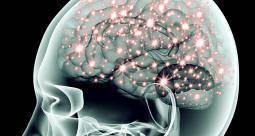Specific Set of Nerve Cells Control Seizures

Specific Set of Nerve Cells Control Seizures Epilepsy is a complex disease with diverse clinical characteristics that preclude a singular mechanism. One way to gain insight into potential mechanisms is to reduce the features of epilepsy to its basic components: seizures, epileptogenesis , and the state of recurrent unprovoked seizures that defines epilepsy itself. The difference between seizures and epilepsy is commonly confused. The two are not the same. Epilepsy is defined by a state of recurrent, spontaneous seizures. If one seizure occurs in an individual, it may not necessarily mean that they have epilepsy because the seizure may have been provoked and that individual may never have a seizure again. Reviewing some of the basic principles in neurobiology can provide a framework to understand the mechanisms of · seizures · Epileptogenesis · ...

